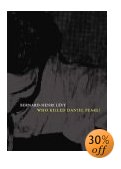|
| Home | About Kashmir Herald | |
Volume 3, No. 9 - February 2004 |
|
| Featured Article |
|
|
|
Is there a 'Plan B'? K.P.S. Gill President, Institute for Conflict Management The present situation in Pakistan presents an urgent challenge, not only for nations within the South Asian region, but for the entire international community and the leaders of the global war against terrorism. These challenges have been underlined by a continuous succession of disturbing disclosures since 9/11, and by the near complete uncertainty of prospects for the future. Over the past months, the question has been frequently asked by a number of senior government officials and responsible diplomats from several countries: what is to be done with Pakistan? A fundamental transformation is inevitable over the coming years, but is it being facilitated by the near exclusive reliance on the questionable commitment and survival of the country's current dictator, General Pervez Musharraf? It is useful to ask, under the circumstances, is there a 'Plan B' for Pakistan? There appears to be little evidence of any structured alternative even being considered by the 'international community', or any of its constituent nations. The world, it appears, has fallen victim to the seduction of the TINA ('There is no alternative') factor. But the TINA argument has always been the plea of bankrupt minds. Over the past years, the world could have created an alternative, if its leaders had the capacity and the will to imagine one. Such an enterprise at constructing, if not a programme for regime change in Pakistan, at least one for an alternative successor regime (not just a modus vivendi with whichever General grabs the presidency after Musharraf), is critical for a number of reasons. For one, the country's own leadership has proven chronically incompetent, and Pakistan is, to all effects, now being run from the outside: most of its critical decisions in the recent past have been coerced by external pressure. More significantly, the internal dynamics that obtain in Pakistan today will not survive the end of the present year, after which the tensions that already exist within the system will become unbearable. Musharraf, if he sticks to his word, will no longer be the Army Chief after the year-end. Though the new chief would be 'his man', it is not clear how long such loyalties would abide - which is why Musharraf has been extremely reluctant to relinquish the post. In any event, a duality between the President and the Army Chief would lead to further and necessary erosion in Musharraf's authority and would significantly increase political uncertainty in the country (it is useful to recall that General Zia-ul-Haq held on to the post of military chief throughout his Presidency for precisely these reasons). Such uncertainty is already rising, and Musharraf has been immensely weakened over the past months. A dictator's authority is inevitably undermined by determined attempts at assassination, and the two on Musharraf's life last December have deeply damaged him, underlining his vulnerability in the eyes of the Pakistani people, and of his enemies. Ambivalent supporters now find it easier to distance themselves from the President, and political opportunists will be tempted to bring out the long knives. There is a concomitant loss of authority among the masses as well, and this can only worsen over time, as he becomes more isolated within a hardening security bubble, more dependent on selective inputs from a narrow coterie. The loss of authority and growing isolation is already visible in Musharraf's decision to move his residence and military headquarters from Rawalpindi to Islamabad, signalling the raw fact that the President is no longer safe among his own people. The fullest consequences and magnitude of this shift are yet to be adequately noticed. With the Al Qaeda and its affiliates targeting him, moreover, there is also the simple and brutal question of his very survival from day to day. The cumulative destabilizing impact of these factors, moreover, is multiplied manifold by the prospects of a new Administration and changing perspectives in Washington after the November 2004 US Presidential elections. At this juncture, then, even if he survives, what does Musharraf actually control? By his own admission, he no longer controls the jehadis that he and his Army had long nurtured - and it is now clear even to his most cynical detractors that at least some of these are eager to kill him. By his own admission, again, he does not 'control' the country's nuclear programme and its nuclear scientists - since they apparently proliferate nuclear technologies without his knowledge. It is increasingly clear that he does not entirely control the fundamentalist parties - including the Muttahida Majlis-e-Amal (MMA), whose political ascendancy he engineered in the rigged elections of October 2002, and who subsequently forced a humiliating compromise on him, including the commitment to step down as Army Chief by the end of the current year. The character and location of December's assassination attempts demonstrate, moreover, that his control over parts of the Army itself is not altogether complete. Yet this insecure dictator remains the world's most critical, indeed, 'indispensable', instrumentality in the war against terror, and for the stabilisation of the wider region around South Asia! Significantly, within Pakistan, Musharraf's progressive weakening has not been accompanied by the gradual emergence or strengthening of other institutional alternatives. Indeed, all political authority in the country has suffered continuous erosion under his predatory regime. There is, of course, deep and growing resentment within the democratic parties and civil society, including the civilian bureaucracy, against the military dictatorship, but this has not crystallized into a working political opposition or a potential political alternative, because Musharraf retains sufficient control of the state's instrumentalities of repression to suppress any manifestations of democratic political dissent. The result is that, though his own grip weakens, no other national institution has been allowed to grow under his emasculating shadow. Historically, as dictators become weaker, their reliance on external support becomes the more urgent, and such support has ordinarily been forthcoming for some of the most odious regimes in the past. Historically, again, such external support has seldom succeeded in restoring the crumbling authority of such regimes, and has often contributed directly in their erosion, and to a rising anarchy. Indeed, in Pakistan, there is some evidence that the problems are currently being compounded by their 'solutions'. Increasing international aid makes the Musharraf regime even more unpopular in a country where Islamism and hatred of America and the West have been a necessary cultural and educational ingredient for decades. What, then, can be done with Pakistan? Militarist adventures for 'regime change', as Iraq has amply demonstrated, are not particularly efficient mechanisms to secure necessary and desirable transformations. Indeed, as Iraq again demonstrated, international regimes of sanctions and inspections could be far more efficient in curbing the more dangerous of an unhinged dictator's projects. Consequently, where there are possibilities of reforms through existing international and domestic institutions, pursuing these would be a far more desirable course of action. Pakistan does have an incipient - though sullied - democratic tradition, and in strengthening it, a long-term alternative could have been created to the present and corrosive dictatorship. There is a natural element of transparency and predictability in even the most flawed of democracies, which is totally lacking in the present order in Pakistan. Today, under the Musharraf dictatorship, no one knows what devastating secret is going to come to light next. Within a free, multi-party democratic order, at least the worst excesses of the present authoritarian system would be held in check. Instead, there has been a tendency to uncritical indulgence of the rogue regime in Pakistan, encouraging it in its recklessness by continuous concessions. Thus, instead of being brought under a regime of harsh sanctions for illegal nuclear proliferation, Musharraf finds it possible to refuse, in no uncertain terms, to allow international agencies to investigate the proliferation network in his country. He also refuses to take any action against the principal proliferators on the plea that the offences lie in the past (but all punishable offences lie in the past), and the network has now been 'shut down' (as have, according to his claims, been the terrorist camps in Pakistan, apparently for two and a half years now). Any international investigations into the proliferation network, he argues further, would offend against Pakistan's 'sovereign' status. But it is not Pakistan and its sovereignty that are affected by these acts of proliferation. It is the world's security. The degree to which Pakistan threatens global security remains deeply underestimated because of a peculiar characteristic of its transgressions. Despite the great evil it has wrought, there is no single, iconic figure that dominates its offences against the norms of civilization - no 'lunatic' Saddam Hussein, Muammar Qaddafi or Kim Jong Il. It is the entire state apparatus that has internalised terrorism as an instrumentality of state policy, and successive regimes and leaders have pursued the same policies, irrespective of their proclaimed political proclivities. This makes it harder, both to comprehend and to control what Bernard-Henri Levy has described as "the biggest rogue of all rogue states of today… what is taking form there, between Islamabad and Karachi, is a black hole compared to which Saddam Hussein's Baghdad was an obsolete weapons dump." There have been ample warnings, and these have gone unheeded to disastrous effect in the past. It is the tragedy of all nations and their leaderships that they fail to learn until the bodybags come to their own doorsteps; and even then, they learn very slowly. That is why evil triumphs; not because it is stronger, but because we choose to look the other way. Courtesy: South Asia Terrorism Portal |
 |
 |
 |
|
|
Archives
| Privacy Policy |
Copyrights
|
Contact
Us | |
||